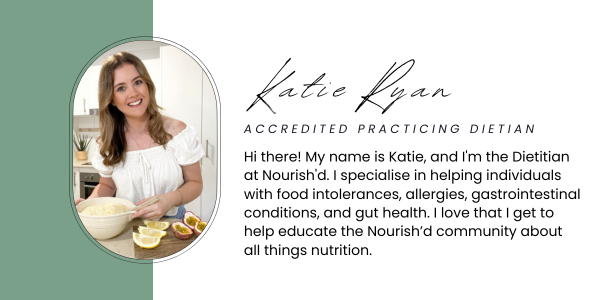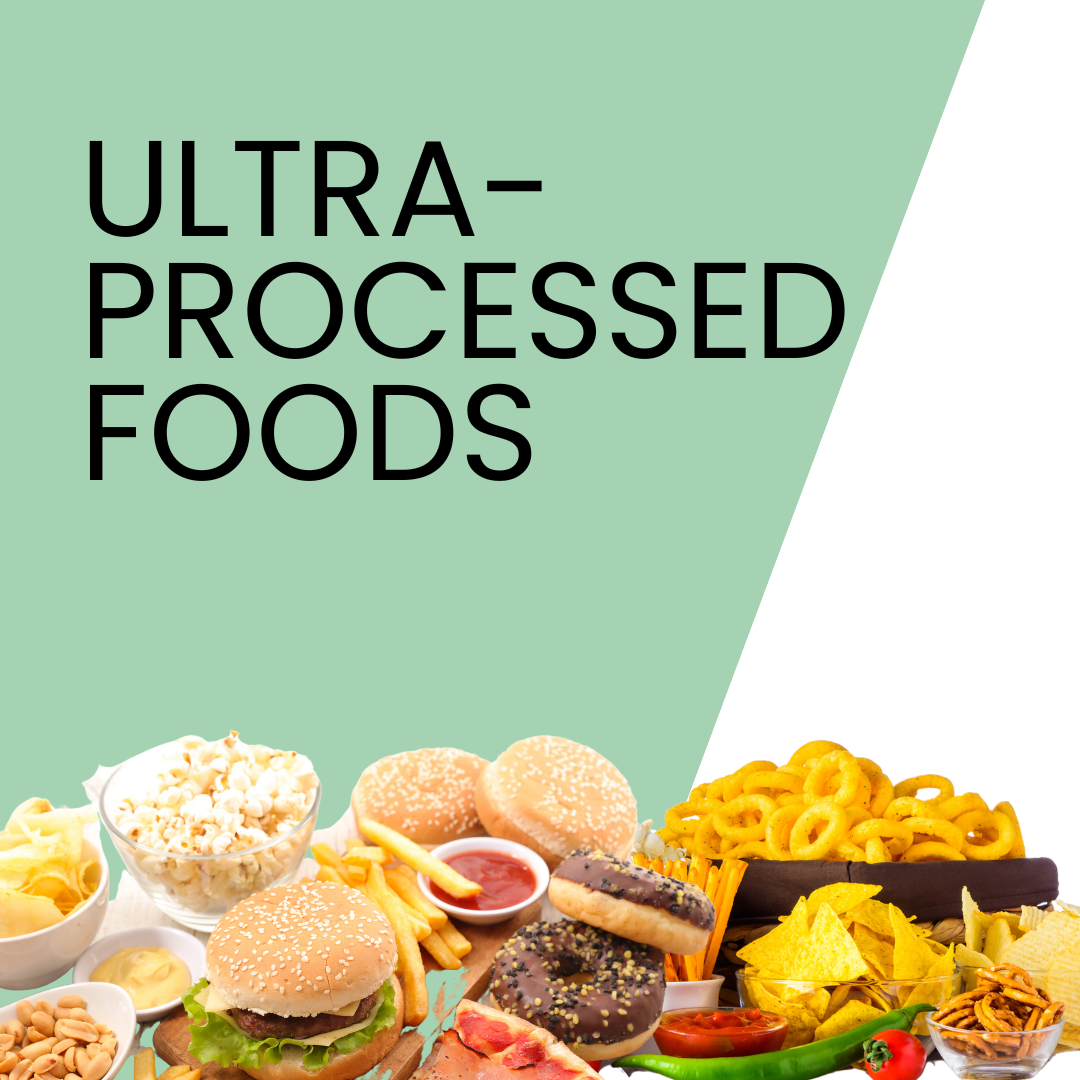The supermarkets are lined with thousands of bright, colourful, enticing food packages. Food technology has advanced in recent years, with food manufacturers being able to use industrial processes and modifications to make the food products more palatable, have a long shelf life, and provide convenience. But do these food products come at a cost to our health? Let's take a look…
What are ultra processed foods?
Ultra processed foods are food products that are typically made with added sugar, salt, fat, preservatives, additives and colours. They usually have a long ingredients list, and are far from any natural form of food. The NOVA Food Classification System categorises foods based on their level of processing.
NOVA Food Classification System:
Group 1: Unprocessed and minimally processed foods
Foods that are from edible plants and animals. No processing of the food has occurred other than removing inedible parts, drying, pasteurising, steaming, or chilling for storage to prolong its shelf life.
Examples include: fruit, vegetables, brown rice, lentils, legumes, meat, poultry, fish, eggs, milk, nuts, seeds, herbs, and spices
Group 2: Processed Culinary Ingredients
Include foods from group 1 that have undergone processes such as refining, extracting, pressing, or mining.
Examples include: oils from nuts or fruit, butter, honey, and maple syrup
Group 3: Processed Foods
Food products made by adding salt, sugar, oil, or products from group 2. Preservation methods such as canning or bottling.
Examples include: canned or bottled vegetables and legumes, salted or sugared nuts and seeds, dried or smoked meats, canned fish, and fruit in syrup
Group 4: Ultra Processed Foods
Foods made from a formulation of ingredients, usually with added additives, preservatives, colours, sugar, salt, and fat, which undergo industrial processes and modifications to make the product palatable, have a long shelf life, and are convenient. Usually packaged with plastic, or other materials.
Examples include: carbonated drinks, packaged snacks, breakfast cereals, flavoured yoghurts, ice cream, pastries, and cakes.
Why should we be avoiding ultra processed foods?
Several studies show ultra processed foods are more likely:
- Higher in added sugar
- Higher in saturated fat and trans fat
- Higher in sodium
- Lower in Fibre
- Lower in Protein
- Lower in essential vitamins and minerals
- More Energy Dense
Additionally, studies have also shown that there is an association between a high intake of ultra-processed foods and and increased risk of:
- Overweight and obesity
- Hypertension
- High Cholesterol
- Cancer
- Irritable Bowel Syndrome
- Metabolic Syndrome
- Cardiovascular Disease
5 simple swaps you can make to reduce your intake of ultra processed foods
- Swap flavoured yoghurts for plain greek yoghurt with fresh fruit
- Choose wholegrain cereals like porridge over processed cereals with added sugar
- Use fresh herbs and spices over packaged sauces and meal flavouring kits
- Swap muesli bars or snack bars for mixed nuts
- Read food labels - choose packaged products with no added preservatives, additives, sugar, sodium, or fat. Typically, the longer the ingredient list, the more processing the food product has undergone. Choosing food products with only ingredients you can read is also a handy tip.
We’re proud to offer 100% preservative, additive, refined sugar free meals at Nourish’d. Our meals are made with real foods only, no long confusing ingredients lists! To explore our range of meals click here.



